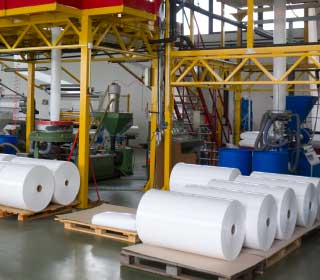
Magnera
This global nonwoven manufacturer has recently formed a closed-loop recycling ecosystem to supply post-industrial recycled materials for the manufacturing of its Endura™ spunbond and meltblown nonwovens product line.

They’re a company founded on the principals of sustainability, and it’s part of everything they do. Based in Victoria, British Columbia, Bast Fibre Tech Inc. (BFT) is a cleantech fiber engineering firm that transforms raw fibers from cotton, hemp, and flax to meet the rigorous standards required in nonwoven products.
The proof of their efforts: this INDA member has chosen hemp and other bast fibers as the natural choice for the production of truly sustainable plastic-free nonwovens. These fibers have a compelling sustainability story, but historically, they have been overlooked by the industry as inconsistent and difficult to process. In turn, BFT has spent years perfecting innovative processes that clean, purify, and individualize bast fibers to meet the exacting standards of the nonwoven industry.
The resulting demand for BFT’s natural and sustainable hemp fibers for upcoming products has been an overwhelming success. They are currently working on specific product development with many of the largest converters and brands as well as many fast-moving medium sized companies looking to use natural fibers to replace plastics.
Responsible sourcing is a major focus within BFT. The company has implemented an ancient forest friendly sourcing policy in conjunction with Canopy, an international non-profit dedicated to protecting the world’s forests, climates and species. The global plastic movement has unintentionally placed added pressure on ancient and intact forests with high demand for wood-based alternatives. BFT’s proprietary process uses bast fibers from flax and industrial hemp to provide annually renewable plant-based solutions for nonwoven products.
BFT has also adopted a “grow local, produce local, sell local” sourcing and manufacturing approach, which has allowed them to avoid unnecessary shipping of goods across the globe, thereby reducing their carbon footprint and streamlining their supply chain.
In regard to responsible end-of-life solutions, BFT’s natural fibers are built on the principles of soil-to-soil circularity. They start with fiber crops grown in soil to create compostable products that can return to the soil. This helps their customers produce compostable products that move away from the ‘take-make-waste’ linear model and enter the circular economy by designing plastic waste out of the supply chain.